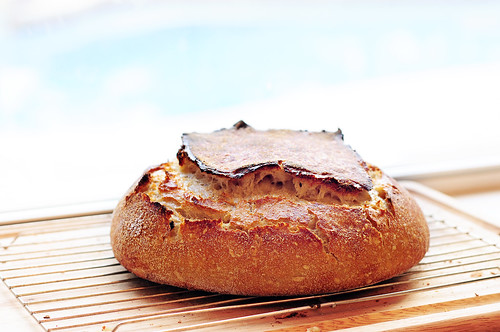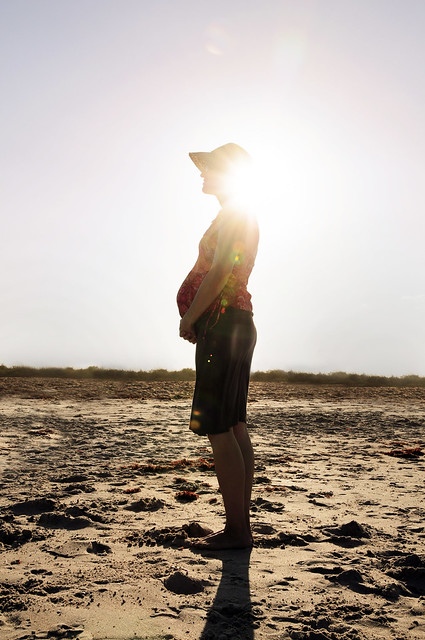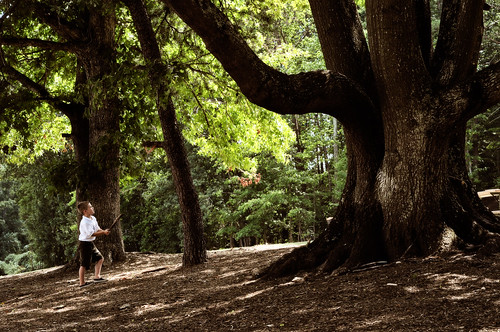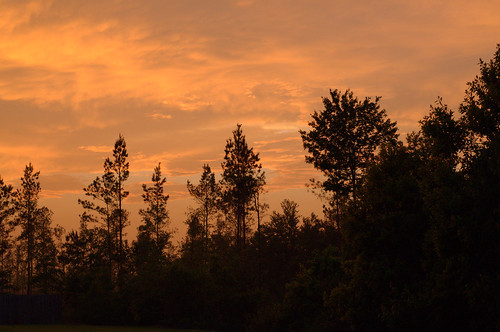by Christie Purifoy | Sep 27, 2012 | Faith, grief, motherhood, Pregnancy, Scripture, Uncategorized

How easily we share our triumphs and proudest moments. Facebook updates. Twitter exclamations. Instagram slices of time.
I post the funny things my boys say. I upload sweet photos of new sisters.
How easily we share our dreams and daily pleasures. Amazon wishlists. Spotify playlists. Pretty pinterest boards.
These are not the deeply rooted dreams, the ones planted in us from our very beginning. These are the daydreams that lie on the surface of our lives.
Here are a few of mine: chicken coops and vintage cookbooks, Irish poetry and organic gardening.
This is what I do not share: weakness. Also, failure.
There is no social media application for shame. Which is, itself, a shame.
Hiding our weakness, we hide the resurrection power within us. Because we know: “The body that is sown in weakness … is raised in power” (I Corinthians 15:43). Covering up our shame, we deny the One who told us “my power is made perfect in weakness” (2 Corinthians 12:9).
I have PCOS, and the same broken hormones that always made it hard to get pregnant also make it impossible to feed my baby. And so the end looks like strange herbs and hours at the breast pump for me, bottles of formula for her.
Bottles to be grateful for, bottles to break your heart.
My baby girl is two weeks old, and I have come to the end of myself. It’s a very short road; the journey didn’t take very long.
But what comes after me? (Or, more precisely, Who?)
Do I believe the kingdom logic that my end is really the beginning? His beginning?
Looking ahead, the view is murky. I have no idea what’s there. I maintain my sanity by focusing on 12-hour blocks of time. The lactation consultant suggested 24. Even that felt like too much.
But, looking back … the view is very different.
Because, I have seen amazing things (Luke 5:26).
(this post prompted by Summer’s beautiful confession)
by Christie Purifoy | Jul 19, 2012 | Faith, Home, Jesus, Uncategorized

We’ve signed papers, and, if all goes as planned, we’ll soon move into an old farmhouse in the Pennsylvania countryside. For two years dreams have been our only food, and those dreams are being realized.
Dream is a word I’ve always had trouble with.
When I was a child I learned words like sinner, salvation, and cross, but those good words twisted themselves in ugly ways until all I heard was duty, obligation, and sacrifice. My faith boiled down to what I owed to Jesus. There is little room for dreaming in a life of obligation.
Why dream my own dreams when Jesus might say follow me somewhere I did not want to go?
The Jesus who loves me – me! – and not my life of sacrifice taught me how to dream. I wanted to live in the city, I wanted a PhD, I wanted children. They were my dreams, and Jesus made them reality. Each dream realized was a gift from the One who is Love.
Until the day I came to the end of my own dreams.
Pregnant with my third child and only a few hurdles away from my degree, I saw a future that looked blank. The horizon was right up close, and I had nothing to aim for. The dreams I had chased for years had come true, but I had no dreams of my own left to run toward.
We cannot live without dreams. They are as necessary as bread.
But where do we find them?
I know now that our best dreams come from the kingdom of God.
For too long, I looked at Jesus and saw only the cross: a one-time event that left me in his debt. I saw but didn’t see.
Jesus’s life, death, and resurrection were not isolated events. They were beginning and ending. They unleashed something so beautiful and miraculous words just can’t capture it. But we try. We say, as Jesus did all those years of his earthly ministry, “The Kingdom of God is at hand!”
Frederick Buechner puts it so well. Speaking of Jesus’s first followers, he writes: “One way or another Christ called them. … They saw the marvel of him arch across the grayness of things – the grayness of their own lives, perhaps, of life itself. They heard his voice calling their names. And they went” (from Secrets in the Dark: A Life in Sermons).
Yes, we are moving to our dream house, but we are not chasing a house. We are chasing Jesus. It has always been his beautiful voice calling to us in the desert. It was his voice that said NO, and NO, and NO when we pursued familiar things like church involvement, an academic career, a life just big enough for three children, no more.
Now, we are living in his YES and everything that looked like sacrifice and hardship has proved to be the surest and best path toward glory.
Buechner goes on, “[Christ] called them to see that no matter how ordinary it may seem to us as we live it, life is extraordinary. … Life even at its most monotonous and backbreaking and heart-numbing has the Kingdom buried in it the way a field has treasures buried in it. … The Kingdom of God is where our best dreams come from and our truest prayers. … The Kingdom of God is where we belong. It is home, and whether we realize it or not, I think we are all of us homesick for it.”
We jumped into the river, though we had no idea where it might take us.
It has taken us home.
by Christie Purifoy | May 31, 2012 | Faith, God's promises, Music, Poetry, prayer, Pregnancy, Uncategorized, Waiting
Pentecost Sunday was nearly a week ago, but I still feel stuck in that room. Waiting. Asking this question: how did they survive the long, empty days between Jesus leaving and the Comforter coming?
How did they endure being lifted up by the joy of a promise believed only to drop again into the discouragement of yet another not yet?
And why the gap? Why did they have to wait at all?
We do know that the wait moved them to gather together. I imagine the promise was easier to believe when they could see the hope in one another’s faces. When they could pass around their Jesus stories, like a platter of bread and fish. Stories multiplied into hope. And faith.
And I imagine they worshipped. Sang and prayed.
Was this what it was all for? Was their worship the reason?
Did God wait, strain with holding himself back, because he wanted to hear their songs?
“Call to me,” he had once told them. “And I will answer you and tell you great and unsearchable things you do not know” (Jeremiah 33:3).
Call. My husband tells me this word suggests something organized, something formal. Something created. Like a song. Like a poem. Something more than careless words tossed at the sky.
Maybe you don’t sing songs. Maybe you don’t write poems. But maybe you journal. Maybe you sketch. Maybe you take photographs or bake bread for the neighbors. Maybe you orchestrate elaborate finger-painted messes with the three-year-olds at church and maybe, just maybe, that is your call? Your song? Your cry for more of God?
And maybe that is the point of it all. The point of waiting. The point of living. To add our call to the many others until a crescendo of sound and beauty and worship rises to heaven and All is unleashed.
Then, just as it was that Pentecost when God’s church was born, wind and fire reveal the great unknowns.
What have we all been waiting for? To hear the mysteries of God’s glory in a language we can comprehend.
Those unsearchable glories we never even knew to seek.

by Christie Purifoy | May 3, 2012 | book of quotations, Books, Faith, Home, Jesus, Stories, Uncategorized

I love this photograph so much. It’s only a picture of my nephew and his stick at the edge of some woods. I think it is one of those pictures that reveals so much more than the sum of its parts: boy, stick, tree.
I look at this picture, and I see fairy tales. Knights with swords as alive as they are. Wickedness that must be sought out in dark forests. I see adventure stories. Those stories that make sleeping on a bed of leaves and cooking food over an open flame sound like heaven.
This photograph reminds me of all that I love about the very best stories: magic, beauty, goodness. Also, darkness, evil, confusion, until, finally, triumph and victory.
I think that I am a Christian because I believe these stories tell me something true about the world. They also tell me true things about myself and about other people.
I think that I will always be a Christian not because I will always believe exactly the same things, or because I have figured it all out, or even because my questions have all been answered. I think I will always be a Christian because the story of King Jesus is a story in which I can live. Within this story, I can move, and I can breathe.
In Still: Notes on a Mid-Faith Crisis, Lauren Winner shares her friend Julian’s memory of being confirmed as a twelve-year-old. A few days before the service, he panicked and told his father (who was also the minister) that he didn’t know if he believed all the right things and wondered if he could proclaim in front of the church that he was ready to believe them forever. Here is his father’s response:
“What you promise when you are confirmed,” said Julian’s father, “is not that you will believe this forever. What you promise when you are confirmed is that that is the story you will wrestle with forever.”
Sometimes, faith is like a wrestling match. Like Jacob wrestling all through the dark night with God himself. Jacob always bore the scar of that struggle.
Sometimes, faith is like coming home. Abiding in a place that reveals something of who we truly are.
Faith is not saying, “I know this” and “I am sure of that.”
To have faith is to say, “This is the place where I live.”
Jesus said, “Live in me. Make your home in me just as I do in you.”
John 15:4 (The Message)
by Christie Purifoy | Apr 6, 2012 | Faith, Family, God's Love, God's promises, grief, Jesus, Lent, motherhood, Uncategorized
I thought it would be hard to fit Good Friday into Spring Break. I thought it would be difficult to clear space for the cross in a week devoted to beach, pool, and mother-daughter shopping.
I was wrong.
In the car, on our way to the dollhouse store, her voice pipes up from the back seat. It’s hard to hear, the radio too loud, but I know she’s just said something about Daniel. I want her to stop talking. I can’t bear to hear any more about Daniel.
“That’s where Daniel lived.”
“Daniel is gone now.”
“Daniel is the first kid my age to die.”
Then she repeats the words I’ve heard so many times these past few weeks: “I wish I knew what happened.”
My daughter wants to understand how her second-grade classmate died. She wants to know how his little brother died. And how his mother died. We’ve talked about it a lot, but when it comes to the details, I’ve been vague. I’ve spoken of mental illness and accidents. I’ve never spoken the word murder. I can’t bear for her to know how dark the darkness really is.
It’s amazing, really, that she doesn’t know. With all the television cameras camped in front of her school, the grief counselors gathering the children into circles on the floor, the adults whispering at the bus stop, and me, trying to turn the tv off, the radio off, whenever she walked into the room, it’s a wonder that we managed to protect her from the full story. Because, of course, the full story only leads to an unanswerable question: why?
Why did this happen to these beautiful boys? God, why did you let this happen?
The small voice from the backseat says, “Daniel is in the ground now.” With these words, I find my voice again, and I tell her what I believe.
I tell her about Good Friday. I share the word gospel, and I explain that it is so much bigger, so much more beautiful than I understood when I was her age.
When I was a child, growing up in the church, I thought the gospel was this: “I am a sinner so Jesus died and rose again to reconcile me to God. Now I can have a relationship with God.” But I only understood a small part of the story.
My personal salvation is precious to me, but it is only one, small part of the Easter story. When I face evil, like the darkness which led to Daniel’s death, my personal salvation starts to look small. Insufficient. Sometimes, I even dare to whisper this dreadful doubt: “Do I want to be in relationship with a God who allows such things?”
Confronted by the brokenness of our world, I want more … so much more.
On Good Friday, God gave more. He entered history at one, specific moment and he bore on that cross all the brokenness which came before and all the brokenness that comes after. Including Daniel’s murder.
When God’s own son, Israel’s righteous King, chose to suffer and die he unleashed rivers of justice and peace that will one day flood all of creation. This is a kingdom flood. A flood of living water. A flood to make all that is broken whole again.
When Jesus spoke his final words, he meant not only that his ministry on earth was complete, he meant that death, sin, and all the brokenness of creation were ended.
It is finished.
Can we trust him when evil continues to rear its head? Should we turn to him when our questions push us towards despair?
We know that God gave his own son to suffer and die. We know that God did not abandon his son to the grave. I am convinced that he has not abandoned Daniel. He will not abandon me.
He has not abandoned his creation. He is making it new.
Sometimes we see only a trickling fountain. Sometimes we glimpse the roaring river, but we who have pledged ourselves to this King have been given living water.
For now we share that water with our thirsty neighbors, and we look forward to the day promised each Easter, the day when there will be no more desert. No more thirst.
“Of the greatness of his government and peace there will be no end. He will reign on David’s throne and over his kingdom, establishing and upholding it with justice and righteousness from that time on and forever.”
Isaiah 9:7
Shalom.

(photo by yours truly)
by Christie Purifoy | Mar 22, 2012 | Faith, God's promises, Jesus, Uncategorized, Waiting

That’s quite a confession, isn’t it? I may as well admit to disliking puppies.
Slowing down, living in the moment, appreciating the ordinary gifts of each ordinary hour: those aspirations have become a kind of religion. Widely admired if less widely achieved.
Like most religions, I suppose, there’s a commendable seed of truth. I do believe that the moment matters. Of what else is our life composed? Whether I’m considering growing children or changing seasons, I want to notice. To appreciate. To pause and give thanks.
And yet, I wonder … why do we find this so difficult? Why is there always something inside of us looking ahead, peering around the bend? Why the inner voice always asking “what’s next”?
I think this voice won’t ever fully let us go because we are not living in some eternal moment. We long for that. We dream of it, but we don’t inhabit it. Not yet, anyway.
Our lives are journeys. Our lives are stories. There are beginnings and endings, narrative lulls and cliffhangers. Mountains and valleys.
To look ahead, to anticipate all that’s yet to come … this is the substance of faith. This is the shape of Christian spirituality.
We pick up our crosses and follow One worth following.
We run with perseverance the race marked out for us.
We strain our eyes looking for promised lands, for God’s kingdom breaking in, for creation made new.
The moment may be good. It may be very, very good. But we know that we’ve been promised even more.
Glorious anticipation.
“All I have seen teaches me to trust the Creator for all I have not seen.” – Ralph Waldo Emerson






